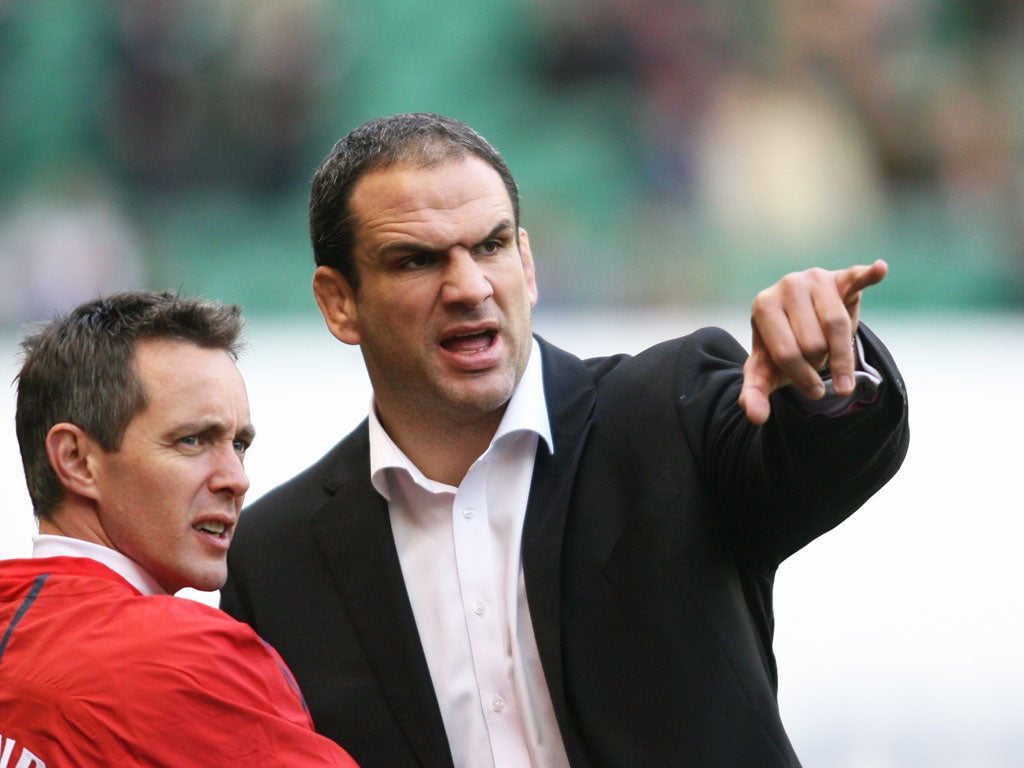The Last Word: 'Big Name' doesn't mean huge hit as coach
As a rule, messianic delusions are exposed by the demands of a very different vocation

Without recourse to dangerous narcotics, you will never obtain a better sense of what it might be like to see a gazelle hauled to the ground by a pole-vaulting octopus than Alessandro Nesta's hilarious tackle on Lionel Messi on Wednesday. It was, to be sure, as safe as it was calculated. As the melange of limbs resolved itself, and the pair got to their feet, Nesta received his yellow card with a helpless shrug. His apology to Messi was also endearing. My fault, he seemed to suggest, for being so clumsy, or cynical; but your fault, also, for being so fast.
Nesta was the cornerstone of an epic siege defence by Milan's veterans, who lacked just the barrels of boiling oil for some invisible crenellation around the penalty area. Having played little this season, Nesta was only wheeled out against Barcelona after an injury to Thiago Silva. He had turned 36 the previous week. Other outstanding players on the night included Massimo Ambrosini and Clarence Seedorf, respectively 34 and 35.
Their ageless display confirms the growing reputation of a manager, Massimiliano Allegri, who is himself only 44. But if it feels incongruous to salute Silvio Berlusconi for spotting Allegri – on no stronger evidence than a promotion to Serie B with Sassuolo, and ninth in Serie A with Cagliari – then how much stranger to see the Rugby Football Union, another byword for ludicrous self-importance, promote a coach of still less glamorous antecedents.
Of course, the appointment of Stuart Lancaster is itself an admission of the excruciating flaw in the choice of his predecessor. Martin Johnson was installed on the same infantile basis as Diego Maradona as Argentina's football manager. As coaches, only two words counted on their respective CVs. Which was just as well, because other than their names, each was otherwise entirely blank. And while their relative dignity made you grieve for Johnson, the dividends were as similar as they were predictable.
The appointment of some past hero, as deus ex machina, almost invariably proves the maladroit, artificial plot device that exposes inconsistencies in all that has gone before. Yet while that may be blindingly, bitterly obvious at Bloke-In-The-Pub level, time and again it eludes those whose experience and standing supposedly qualify them to recruit national or club coaches.
There are exceptions, naturally, like Roberto Mancini. But it is akin to using a Sèvres vase, for years filled with flowers, suddenly to store coal. It can be done, in principle, with sufficient luck and judgement. And it is exciting, certainly, to see a player as glamorous as Vincenzo Montella laying foundations so rapidly at Catania – now, unfeasibly, up to seventh in Serie A.
As a rule, however, messianic delusions are exposed by the demands of a very different vocation. Lancaster's own playing career was inconspicuous and his earthy bearing is compounded by the mesmerising, deformed lugs of his forwards coach, Graham Rowntree. Here are men who will discourage in their players those same vanities that infect so many managerial appointments, across different sports. And they have soon made England a much easier squad to wish well.
It seems elementary that players will combine more productively when they comprehend the difference between pride and vanity, or pride and arrogance. And their collective ethic, in turn, must depend upon more than fading stardust. It's all very well having someone who has always been fearless, in leading the way up the ladder. Ultimately, morale is likely to be best served if the trench is in the right place, the line of supply secure, the bombardment effective, and the barbed wire already cut.
Lancaster could hardly have a tougher start than South Africa this summer, England's Six Nations campaign having disclosed little of the incendiary speed required on that dry terrain. But coach and players alike have already done enough to warrant indulgence, as they gain experience towards the 2015 World Cup.
How many other situations vacant, you wonder, will be filled with the common sense that deserted the RFU when it traded a top-class coach, in Brian Ashton, for The-Bloke's-A-Legend? Consider the most admired managers emerging in British football: men like Brendan Rodgers, Paul Lambert and Nigel Adkins. When the time comes, by the same token, might Manchester United actually approach David Moyes, because he is demonstrably an excellent coach; or will they satisfy their vanity with a Bigger Name?
It seems possible that sanity might even have broken out at Internazionale, where the hankering for Jose Mourinho – never a player at all, of course – has caused such misery. The club's third manager this season was this week unveiled as Andrea Stramaccioni, whose mediocre playing career was curtailed by injury. Two years younger than Javier Zanetti, he arrives after making his name in youth football and coped serenely with the surreal intervention of Mario Balotelli during his first press conference.
A coach must command the respect of every kind of player, from a box of frogs like Balotelli to consummate professionals like Nesta. That is not a question of age; nor of past glories. Because they will soon find out, one and all, if the qualifications sustaining a big reputation are – purely and literally – only nominal.
Subscribe to Independent Premium to bookmark this article
Want to bookmark your favourite articles and stories to read or reference later? Start your Independent Premium subscription today.

Join our commenting forum
Join thought-provoking conversations, follow other Independent readers and see their replies